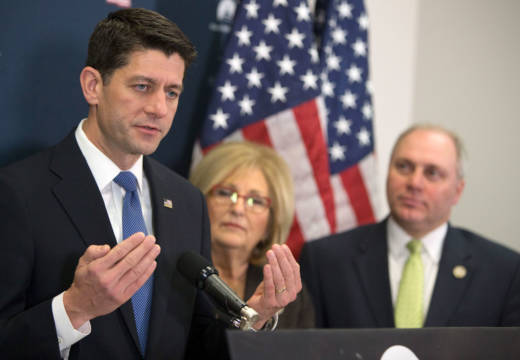A partial repeal of Obamacare could leave 18 million people who have insurance today with no coverage one year later, according to an analysis by the nonpartisan Congressional Budget Office.
The report estimates that 32 million people would lose their insurance over 10 years.
The CBO based its estimates on a bill passed by Republicans and vetoed by President Obama in 2015. That bill amounted to a partial repeal of the Affordable Care Act, also called Obamacare, eliminating the penalty for people who didn't have health insurance. It also cut out the government subsidies that currently help people pay their premiums.
The CBO estimated that getting rid of the penalty for people who do not purchase insurance would lead to 18 million fewer insured people within a year and that the number would eventually grow to 32 million after subsidies and a Medicaid expansion were also eliminated.
As NPR's Alison Kodjak reported, "Congressional Republicans haven't introduced legislation to repeal Obamacare yet [this year], but they've suggested they'll follow the model of the previous [2015] bill."
